I’m sure most of you came to college without knowing how to do your laundry (thank you for years of coddling, Mom). However, I was more appalled when my best friend told me that he doesn’t buy produce because he doesn’t know how to store it. So with that being said, here’s a crash course on food waste and storage for coddled college kids. Your stomach and your wallet will thank me later.
1. Keep your bread tied and put away.

GIF courtesy of giphy.com
Make sure that when you’re done using a loaf of bread, you tie the bag off and put it back in the cabinet. Letting bread sit in the open air will make it go stale very, very quickly. Also, bread can be put in the freezer to make it last longer. Just stick it in the freezer, and take it out to defrost when you need it.
#SpoonTip: Don’t freeze, defrost, and then re-freeze your bread.
2. Yogurt (most likely) does not go bad by its expiration date.

GIF courtesy of giphy.com
Yogurt will stay good for a long time past its expiration date. If it’s two months past due, and you’re like “Kate, I’m not so sure about this one,” go ahead and smell it — you’ll be able to tell. So go ahead and enjoy your Chobani, even if they’re trying to tell you otherwise (as long as you keep it in the refrigerator).
3. Milk does go bad by its expiration date.

GIF courtesy of giphy.com
Sour milk doesn’t play around. Don’t do it. Odds are you’ll smell it and won’t be tempted to try it, so I’m not too worried about this one. However, if it’s almond milk you’re dealing with, there are two different kinds and therefore two different approaches.
There is refrigerated almond milk, which you should treat like dairy milk. Then there is shelf-stable almond milk that comes in a carton, which you can store in the pantry until its far-off expiration date. However, once you open it, move it to the fridge.
4. Freeze unused meat and poultry.
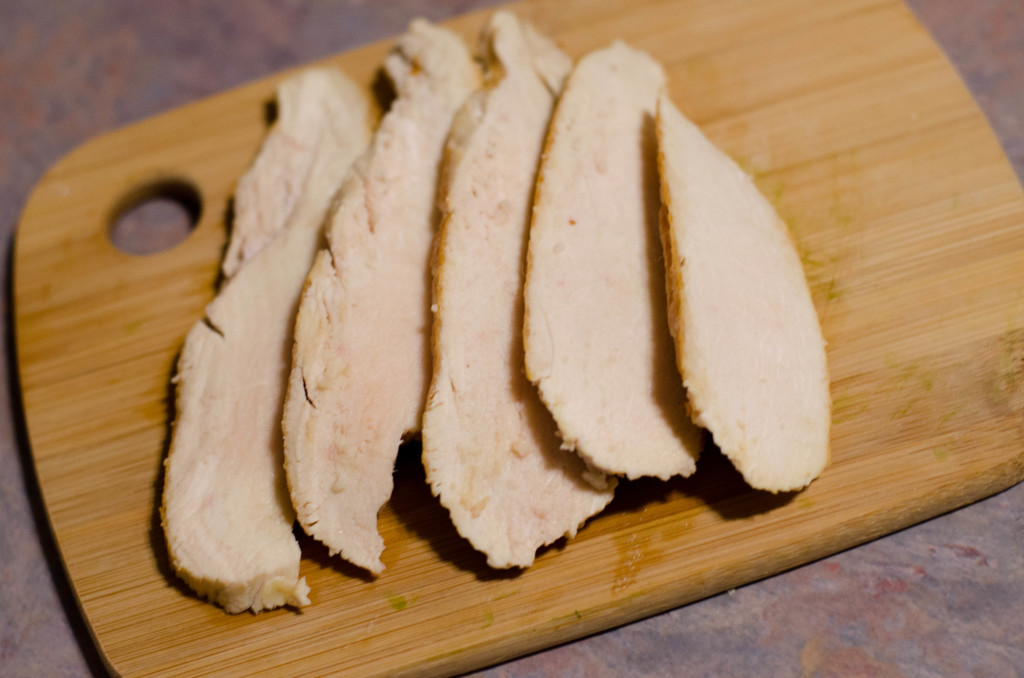
Photo by Nicole Lacasse
If you’re using your chicken, steak, or pork within the next four days, feel free to keep it in the refrigerator. If you aren’t, put it in the freezer for up to 4 months.
5. Most fruits and some vegetables stay on the counter.
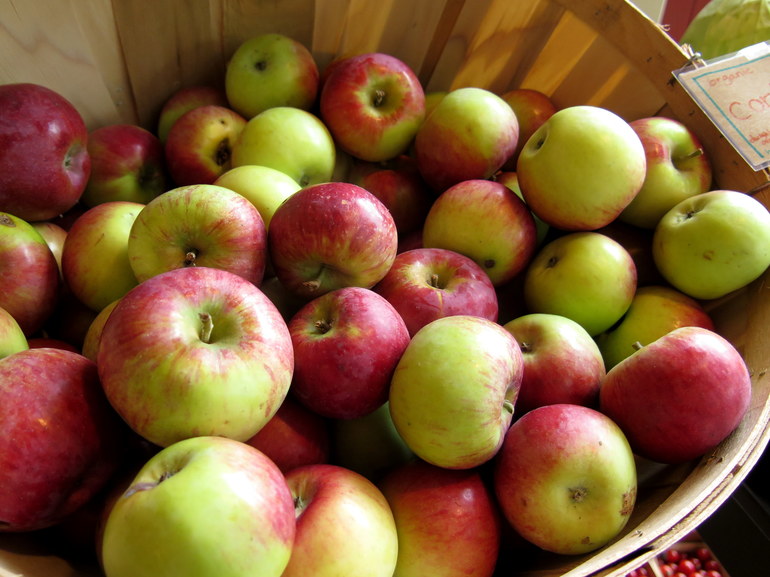
Photo by Dyan Khor
You can ripen these bad boys on the counter. However, after apples, bananas, citrus fruits, tomatoes, pears, avocados, and peaches ripen, move them to the fridge and they’ll stay good for a few extra days. Potatoes will stay good for around 3 months when stored in a dry place away from sunlight and heat.
6. Berries, most vegetables, and dairy products go in the fridge.
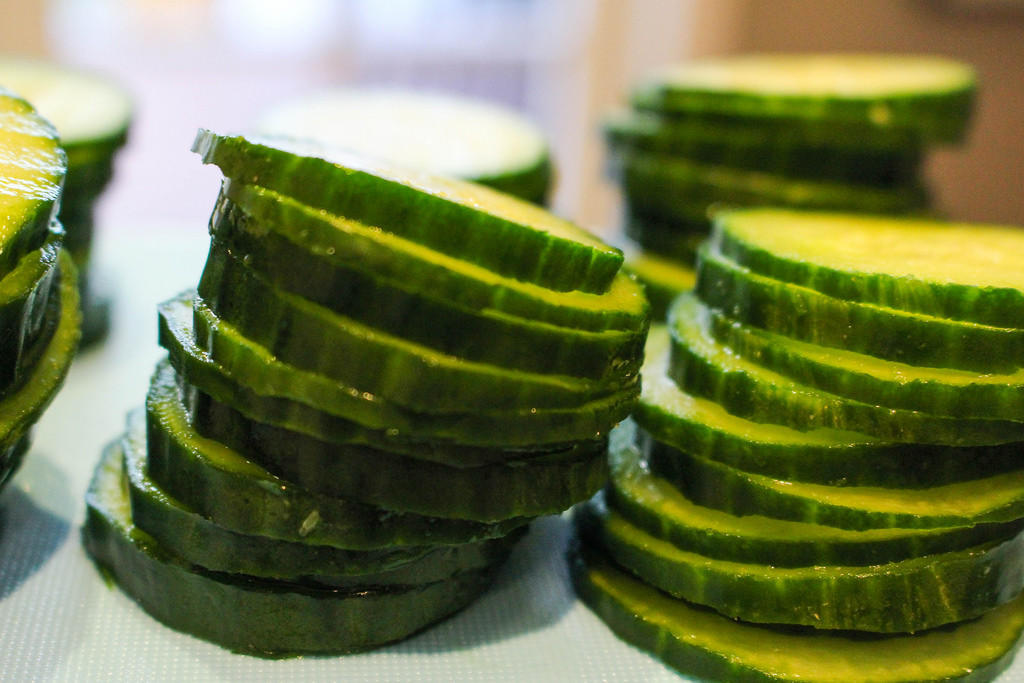
Photo by Lynden Orr
These all go in the fridge but expire at different rates when they’re in there. Check out this article to know exactly how long they’ll last.
7. Refrigerate sauces and spreads after opening.
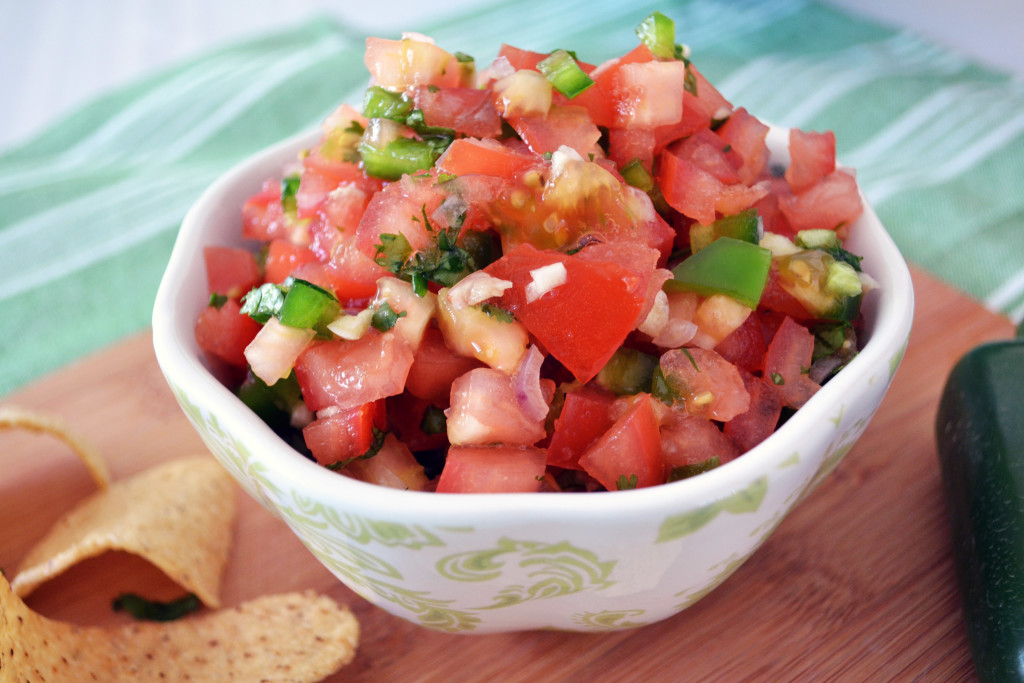
Photo courtesy of littlebitsofeverything.com
You can keep these in the pantry forever — expiration dates usually don’t mean anything when these are unopened. Just make sure that after you’ve opened the jar, you store it in the fridge. Enjoy your salsa and double dip to your heart’s content!
8. Keep your take-out and leftovers in Tupperware.
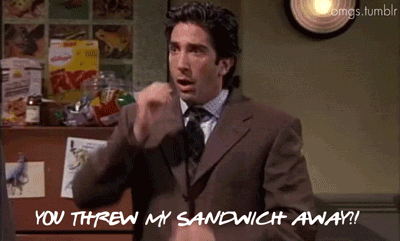
GIF courtesy of omg on tumblr.com
Invest in Tupperware and save your leftovers and take-out in the fridge instead of leaving them uncovered or in the original take-out boxes. Your food will be fine depending on what it is for a few days to a few weeks after it has been cooked. So go ahead and enjoy that PF Chang’s from last Saturday.
9. Non-perishables don’t go bad — that’s the point.

GIF courtesy of giphy.com
If it says non-perishable, sit back and relax. You’re chillin’.

